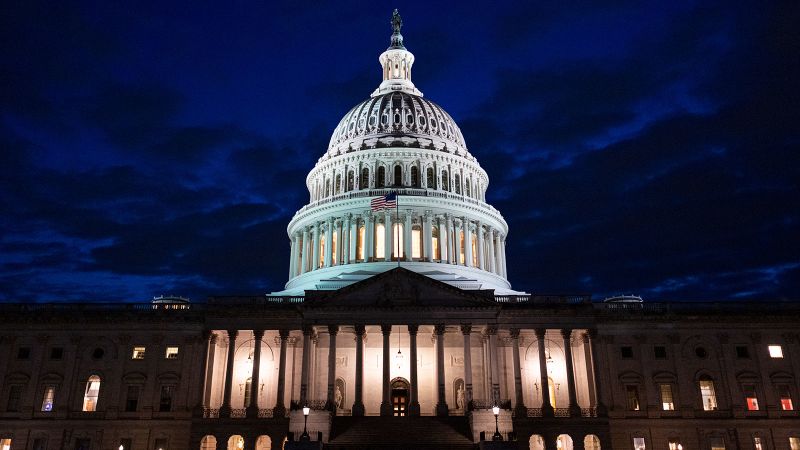CNN
—
Lawmakers have until August to address the debt ceiling or the US could default on its obligations for the first time ever, Treasury Secretary Scott Bessent wrote to congressional leaders Friday, urging them to act even sooner, “to protect the full faith and credit of the United States.”
The projection gives Republican lawmakers – who control Capitol Hill – a firmer deadline of when they have to pass their massive budget reconciliation bill, which aims to increase the debt ceiling along with extending the 2017 tax cuts and slashing federal spending.
In his letter, Bessent said there is a “reasonable probability” that the cash and extraordinary measures that are allowing Treasury to continue paying the nation’s bills in full and on time will be exhausted in August, pointing out that is when Congress is scheduled to be in recess. But he noted that the projection is subject to “significant uncertainty.”
“Therefore, I respectfully urge Congress to increase or suspend the debt limit by mid-July, before its scheduled break, to protect the full faith and credit of the United States,” he wrote.
Treasury has been using cash and extraordinary measures to pay the nation’s bills in full and on time since January 21, when the US hit its roughly $36 trillion debt ceiling. Once the nation reaches that cap, which it has done repeatedly, it can no longer borrow to cover its obligations in full and on time. A default would likely cause global economic upheaval.
House GOP leaders are closely monitoring projections for the so-called X-date, when the government could default, House Speaker Mike Johnson said at an Axios event in late April.
“That’s a big pressure point, and we don’t know exactly when that X date will fall,” Johnson said, noting at the time that he was working under the assumption it could be as early as the beginning of June. “We can’t be caught flat-footed on this.”
However, the caucus remains divided over how to address all three of its goals in the “big, beautiful bill,” leaving leaders with the tricky task of constructing a package that can get enough GOP votes to pass both chambers.
In March, Bessent told lawmakers that he would continue using extraordinary measures – which are largely behind-the-scenes accounting maneuvers – through June 27.
The Congressional Budget Office in March projected that the “X-date” would be reached in August or September.
Though they control Congress, Republicans are divided over how to handle the debt ceiling. The House has included a $4 trillion increase to the cap in its budget resolution, while the Senate version raises the limit by $5 trillion. President Donald Trump has pushed GOP lawmakers to address the limit as soon as possible.

